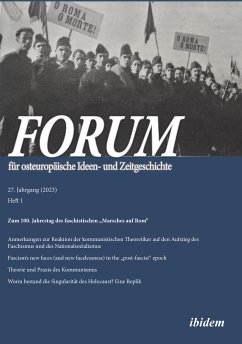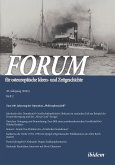[Over] the last decade there has emerged a growing explicit (theoretically formulated) or tacit (pragmatic) acceptance by Anglophone academics working in the field that fascism’s ineliminable core is made up of the vision of a regenerated political culture and national community brought about in a post-liberal age. Inevitably, such a consensus can never be total and there are academics working in fascist studies who continue to apply a different ideal type of fascism, some of whom express deep scepticism about the very existence of an area of convergence on the centrality to fascism of an ultra-nationalist myth of rebirth. The most cited version of the consensus applied by academics who are sympathetic to it is the highly synthetic formula that I used to encapsulate my own ideal type: ‘Fascism is a political ideology whose mythic core in its various permutations is a palingenetic form of populist ultra-nationalism … The totalitarian movements represented by the PNF and the NSDAP and the totalitarian regimes that they underpinned became the role model for all revolutionary nationalists in the inter-war period and synonymous with totalitarian, mass-based revolutionary nationalism itself. This became known as ‘fascism’ after the first such movement to achieve power, namely Mussolini’s fascismo. However, it was only in Italy and Germany that the structural crisis of liberal society was profound enough to generate a genuinely charismatic form of populist politics, one which was not confined to the hard core of movement activists, but involved the particular type of consensus generated by a ‘palingenetic political community’, thereby creating the basis for a fascist regime. (Aus dem Beitrag von Roger Griffin)









